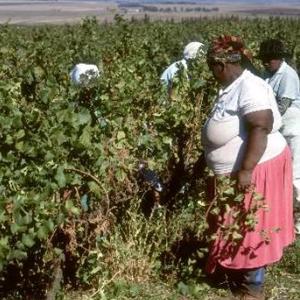The furore over the recently-released Human Rights Watch (HRW) report into labour practices in South Africa’s fruit and wine production has been escalating over the past 72 hours to levels of hysteria, with claim and counter-claim, assertions of bias and defence of methodology, belief and disbelief and, overall, a feeling of weary resentment – a sort of ‘here we go again, let’s pick on South Africa’ kind of sigh.
We do make a meal of being hard done by in this country, but this time, we may well have a point. Having read the report and seen the reporting that has been flashing sensationally around the world, I am left with a few thoughts which I would like to share with you.
Some thoughts
The first is that I believe the report has spoken the truth. The scenarios they have recounted, the practices which they talk about – I can easily believe these things have been happening, are probably going on still, and this makes me ashamed.
But it doesn’t make me quite as ashamed of being a wine-drinker as it does of being an apple-eater. Because the crucial point which has been omitted from all the attention-grabbing headlines is that only one third of these responses came from people who work on wine farms (this fact emerged from the press conference yesterday, as relayed by WOSA communications manager, Andre Morgenthal).
Clearly it is much easier for people to add another layer of guilt to their wine-drinking – it can go along with their health-abuse guilt, drink-driving guilt and hedonistic-pleasure guilt – but God forbid we make people feel bad about eating fresh fruit and vegetables! More people eat fruit and vegetables than drink wine and two-thirds of these abuses were found to be taking place on fruit farms. Think of that next time you bite into a peach.
Be that as it may, these practices are going on in our country and they should be stopped. Which is why I can’t understand why HRW won’t name the farms involved and allow the law to take its course. Confidentiality and fear of reprisals sounds like a cop-out to me; the laws and the police are there to stop things like this happening and if you say that they are worthless and toothless – how do we know, because no prosecutions have so far been attempted?
I particularly want to know who’s involved, because not only would I like to eat my daily apple and drink my daily glass of wine without feeling bad, but I also do not want to recommend wines which are the products of illegal practices to the people who read my columns. I am not happy to think that I might have been doing this already. Not happy at all.
And on the flip side of this, I DO want to recommend wines made by people who obey the law, take care of their staff and have an interest in uplifting and empowering them. If that means that their wines are a little more expensive, then so be it – I pay more to eat free-range chicken, so surely it is far more important for me to drink wine made by people working under decent conditions?
And it must be very frustrating for the vast majority of farmers who have been trying to do the right thing and produce products which take this cost into account, whilst seeing other people blatantly getting away with increased sales, from cheap products made from misery. I’m sure they may well be thinking ‘At last! Our time has come!’ and I hope it has.
So HRW – tell us how we can help get these things changed. Tell us which apples to eat and which to reject. Tell us which wine farms to support and which to avoid. You’ve told us what’s going on, now finish the job and let us fix it and make it better. Because that’s what you wanted in the first place – right?

